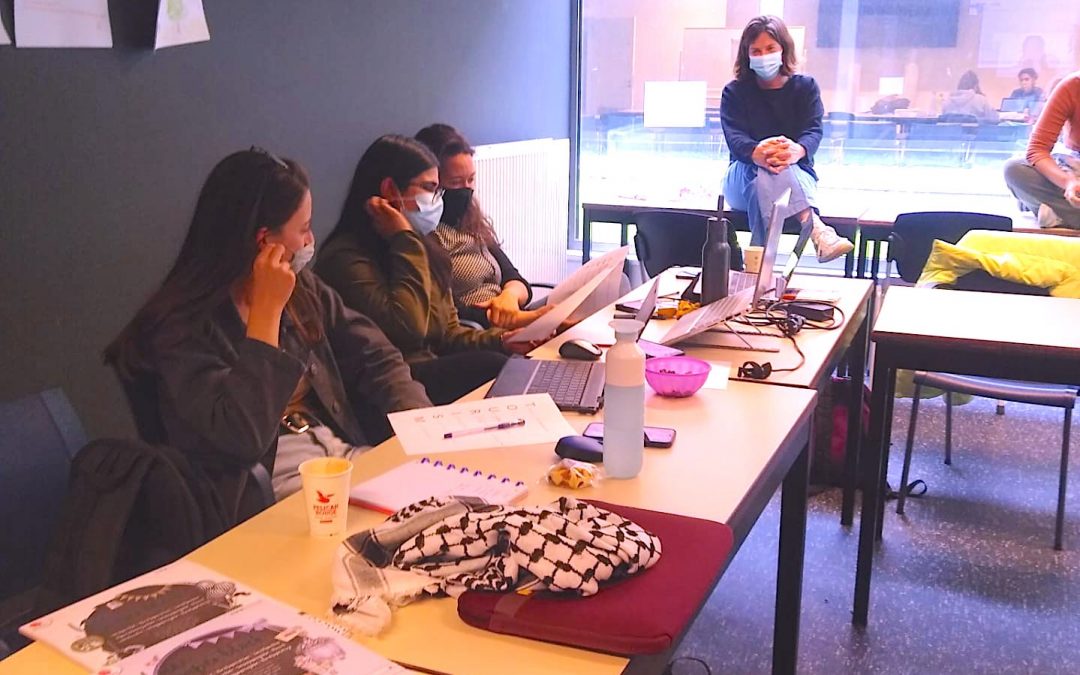By CES Team 2021

Examples of acrostics related to challenges and opportunities in the developing of Sustainable Tourism -CES Team 2021 © SUSDEV
As part the Living Lab fieldwork, the students dedicated one day to think about how to unlock the potential of the sustainable tourism in Ndumo Game Reserve-South Africa. We developed different tools such as questionnaires, interviews guides, workshop and photovoice. At the end of each day we had a moment for a reflection about the potentialities and limitations to unlock the cultural values as part of the sustainable tourism offer
At the end of each day, we carried out a reflection discussion to understand the challenges and opportunities in the unlocking of the cultural sustainable tourism in NGR and beyond. In this regard, we used a simple but effective technique: Acrostics. The participants received one of the following words: Tourism, Cultural, Community, Business and Politics printed in a
A4 sheet. With the information collected along the day in their minds, participants wrote a composition using each letter of the word given (See image 1).
The results were amazing
For Tourism, it was Transport-Objectives-Use local resources sustainably-Responsible-Infrastructure-Society-Management.
To carry out tourism venture the transport and infrastructure is mandatory, however using the local resources in a sustainable way is imperative and society has to be included in the management.
For Cultural, Community-Utilize potential of cultural resources-Livelihoods-Tourism-Understanding of cultural values-Resources-Adaptation-Language.
An important question was, how to include the cultural aspect in the tourism industry? There is not an easy answer but the community might recognize the potential of cultural resources to be use for tourism purposes, which in turn will help secure livelihood for all the community members.
For Community, Community members empowerment-Ownership-Marginal sector vs. big tourism operators-Money from national funds-Understanding potential opportunities-Networks-Infrastructure-Training-Yes, it’s possible!
A lot has been discussed about community members as key actors in the developing of tourism venture. However, there are still some limitations regarding money, infrastructure, training, ownership, competition with big operators among others. Even with all those we as sustainable developers believe that sustainable tourism, (Yes) it is possible!
For Business, Budget constraints-University involvement for creating a link between communities and national level-Small initiatives- Implementation challenges-National vs regional and local levels-Experience to provide communities-Stakeholders’ involvement-Structural weaknesses to successfully implement policies.
The discussion about tourism as a profit industry is broad. In the road to create a sustainable tourism it is necessary to have a good policy implementation, improve capacity building of communities, increase financial support to small initiatives and involvement of academia for creating a strong link between communities and national levels.
For Politics, Pressure-Opinions-Land conservation-Initiatives-Time-Implementation struggles-Cost-Study
Politic was the broadest topic discussed during the group reflection. The community may be willing to work, the private sector may be willing to finance proposals, but the success and sustainability largely depends on how the national policy favors or not the development, in this case, of tourism initiatives.
Participants expressed the satisfaction working during the workshop of assessing, mapping and unlocking of the cultural ecosystem services. As facilitators, it also was a pleasure to guide the students to the different steps to fulfill the task. Finally, all of us had a co-learning experience which enriches our experience as future sustainable developers.
